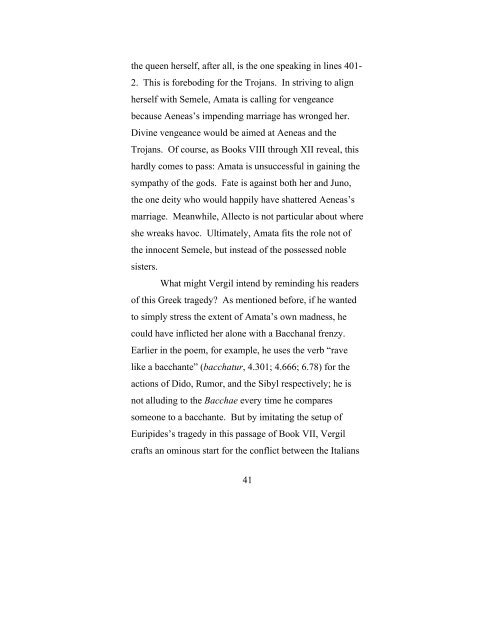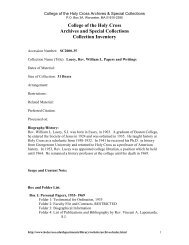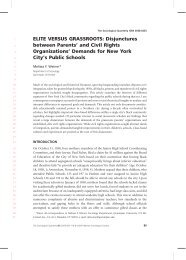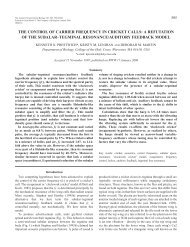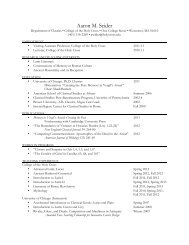Here - Academics - College of the Holy Cross
Here - Academics - College of the Holy Cross
Here - Academics - College of the Holy Cross
Create successful ePaper yourself
Turn your PDF publications into a flip-book with our unique Google optimized e-Paper software.
<strong>the</strong> queen herself, after all, is <strong>the</strong> one speaking in lines 401-<br />
2. This is foreboding for <strong>the</strong> Trojans. In striving to align<br />
herself with Semele, Amata is calling for vengeance<br />
because Aeneas’s impending marriage has wronged her.<br />
Divine vengeance would be aimed at Aeneas and <strong>the</strong><br />
Trojans. Of course, as Books VIII through XII reveal, this<br />
hardly comes to pass: Amata is unsuccessful in gaining <strong>the</strong><br />
sympathy <strong>of</strong> <strong>the</strong> gods. Fate is against both her and Juno,<br />
<strong>the</strong> one deity who would happily have shattered Aeneas’s<br />
marriage. Meanwhile, Allecto is not particular about where<br />
she wreaks havoc. Ultimately, Amata fits <strong>the</strong> role not <strong>of</strong><br />
<strong>the</strong> innocent Semele, but instead <strong>of</strong> <strong>the</strong> possessed noble<br />
sisters.<br />
What might Vergil intend by reminding his readers<br />
<strong>of</strong> this Greek tragedy? As mentioned before, if he wanted<br />
to simply stress <strong>the</strong> extent <strong>of</strong> Amata’s own madness, he<br />
could have inflicted her alone with a Bacchanal frenzy.<br />
Earlier in <strong>the</strong> poem, for example, he uses <strong>the</strong> verb “rave<br />
like a bacchante” (bacchatur, 4.301; 4.666; 6.78) for <strong>the</strong><br />
actions <strong>of</strong> Dido, Rumor, and <strong>the</strong> Sibyl respectively; he is<br />
not alluding to <strong>the</strong> Bacchae every time he compares<br />
someone to a bacchante. But by imitating <strong>the</strong> setup <strong>of</strong><br />
Euripides’s tragedy in this passage <strong>of</strong> Book VII, Vergil<br />
crafts an ominous start for <strong>the</strong> conflict between <strong>the</strong> Italians<br />
41


